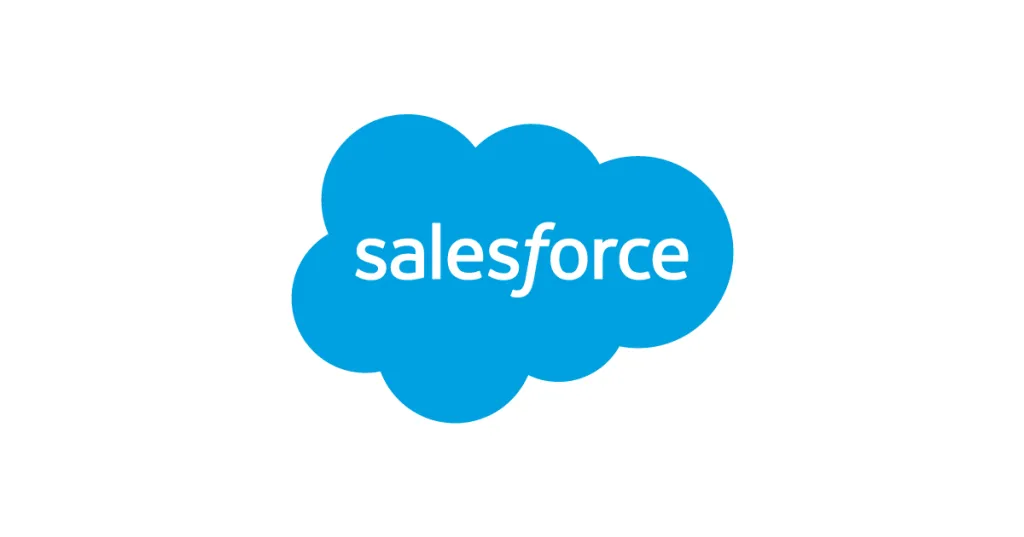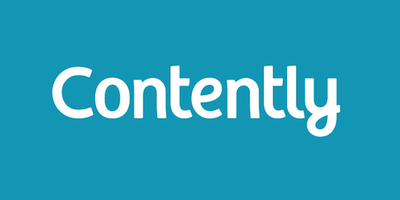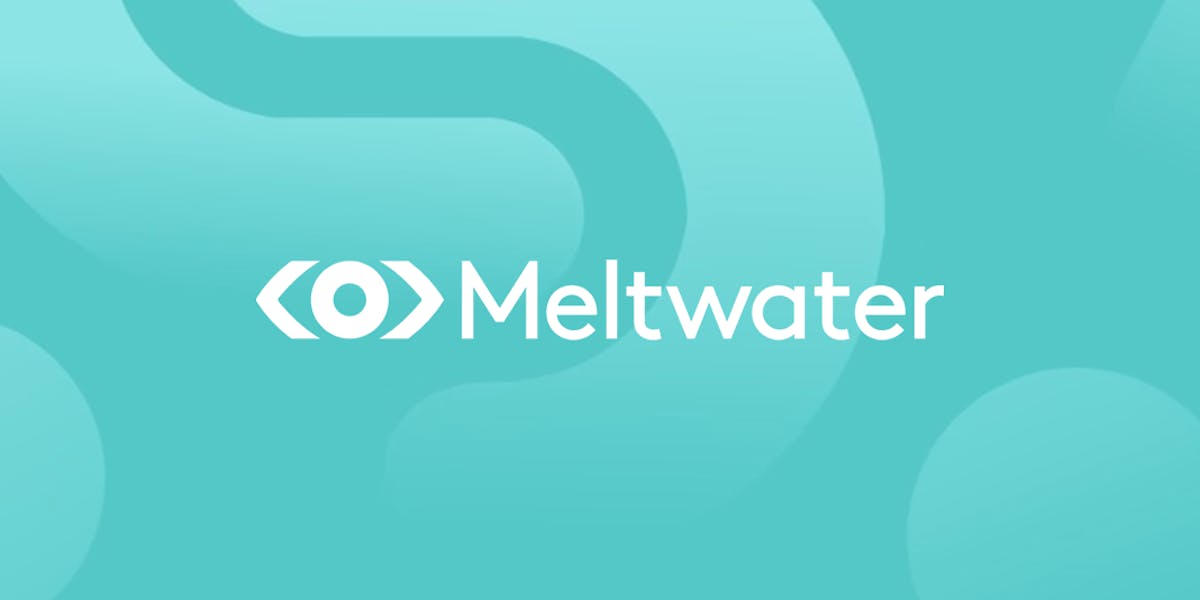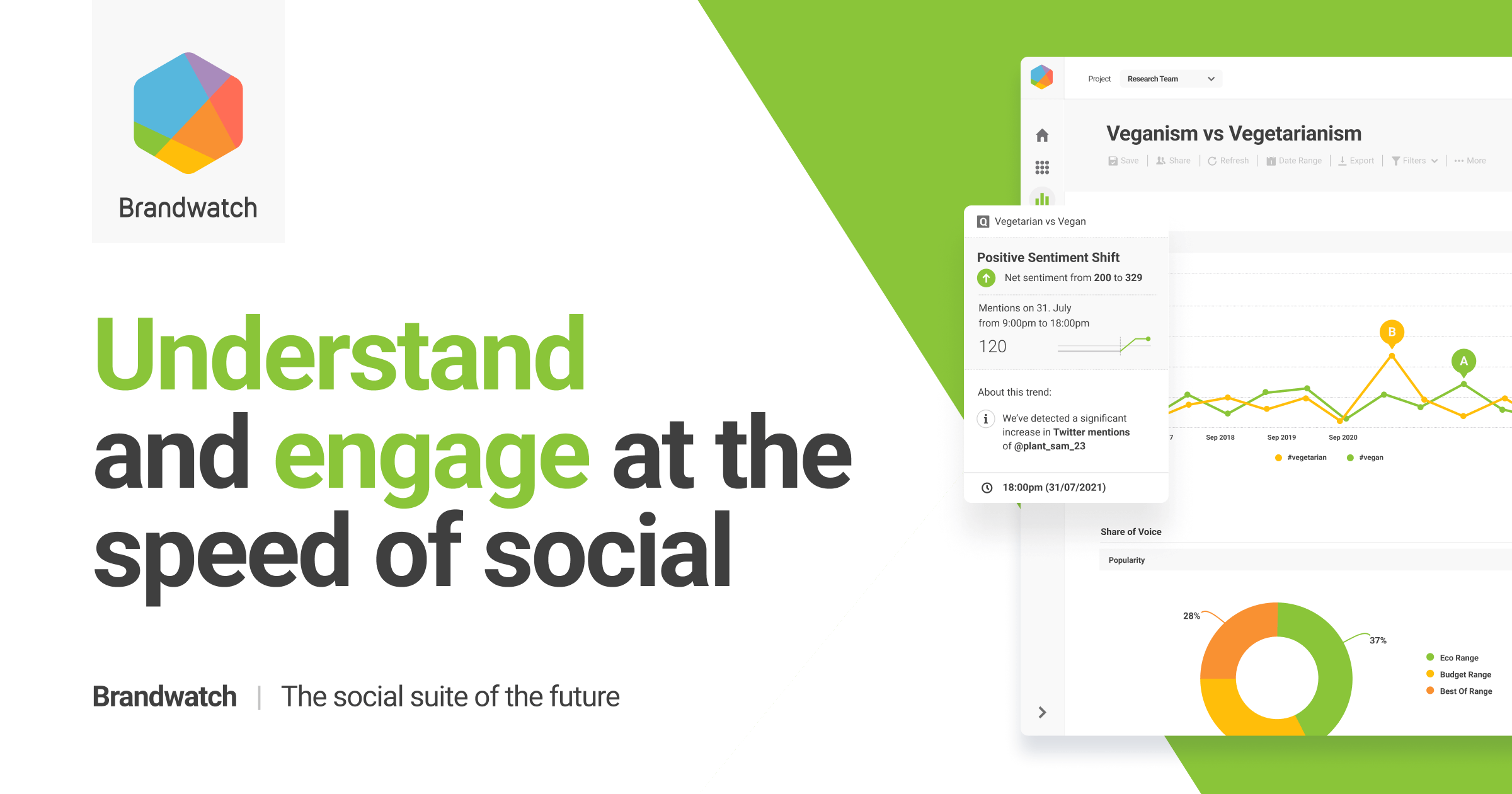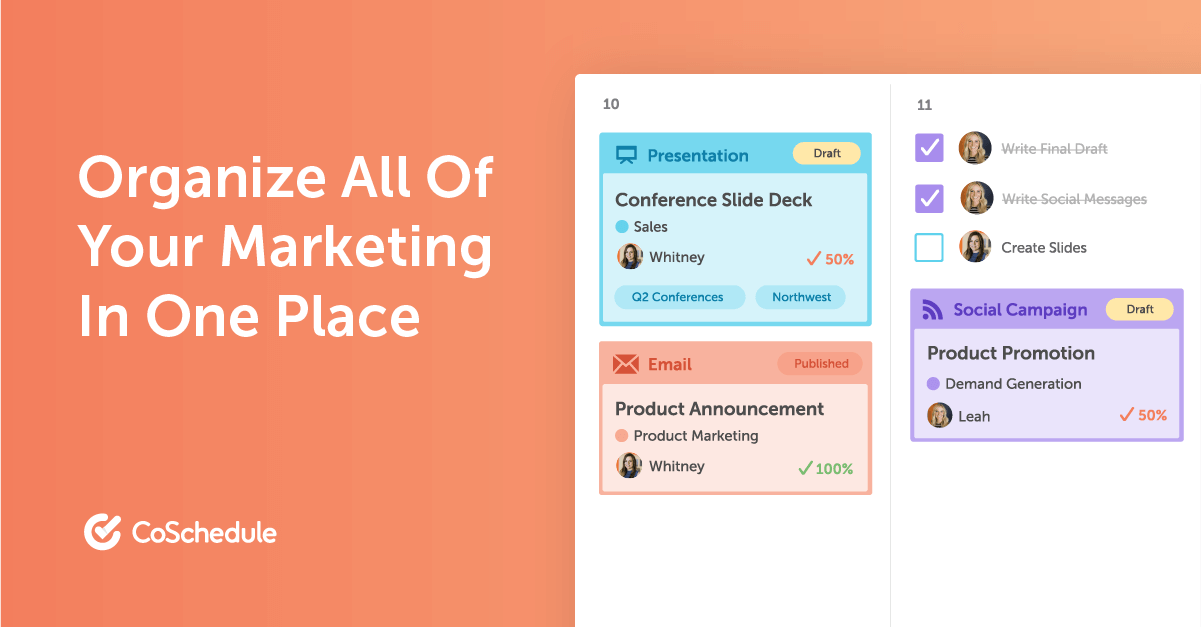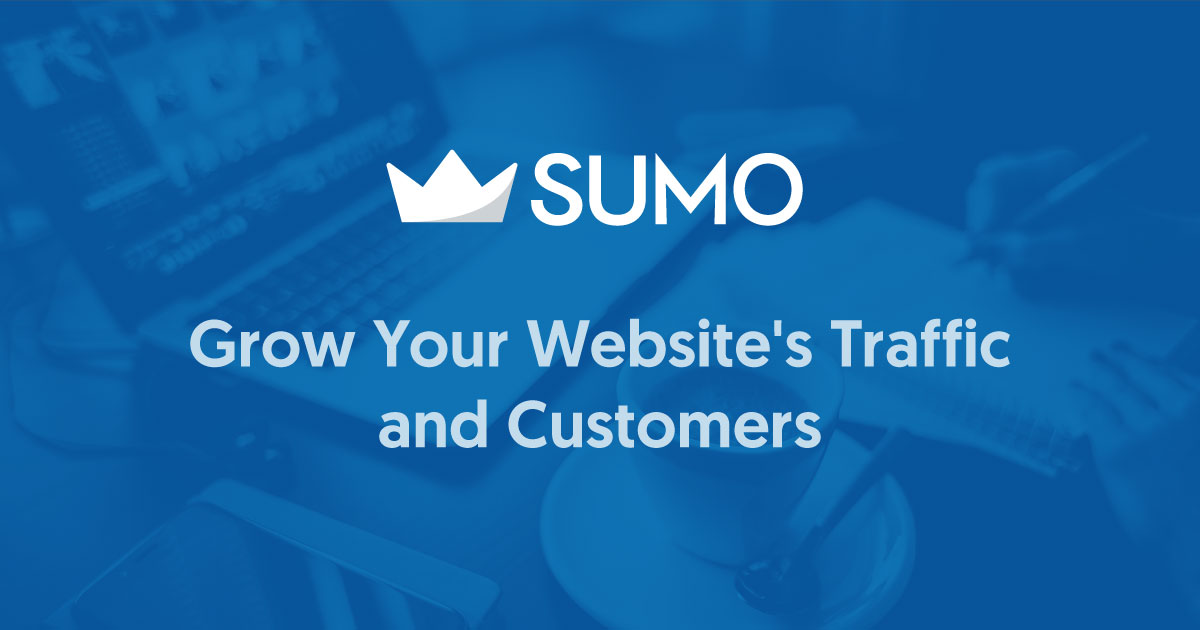Introduction
Social media has become an integral part of every business’s marketing strategy. However, effectively managing multiple profiles across different channels can become overwhelming without the right tools. In this blog, we evaluate and rank 15 of the top social media management software based on key criteria to help businesses chose the right platform to streamline their processes and amplify their reach in 2023.
Methods of Evaluation
We evaluated each software based on the following conventional criteria: features and functionality, ease of use, publishing and scheduling capabilities, analytics and reporting, customer support, pricing and plans. Additionally, we also considered other modern factors like the number of backlinks, organic traffic and keyword search trends to understand the overall popularity and market presence of each software.
1. Facebook Pages Manager
Facebook Pages Manager is a free social media management tool from Facebook that allows businesses and brands to manage their Facebook pages directly from the Facebook platform. With over 2.9 billion monthly active users on Facebook alone, it’s one of the leading social networks for businesses to connect with customers and fans.
Pros: Some key advantages of using Facebook Pages Manager include:
– Optimal for Facebook publishing and advertising as it’s made by Facebook
– Insights tailored specifically for key Facebook metrics like reactions, shares, comments
– Tight integration with other Facebook business tools like Events, Ads Manager, and Catalogs
Cons: The main disadvantage is that Facebook Pages Manager only allows management of a business’ Facebook page and presence. If a business wants to extend their social media presence to other networks like Instagram, Twitter or LinkedIn, they would need another social media management solution.
Pricing: Facebook Pages Manager is free to use for all basic page management, publishing and analytics features. However, if a business wants to boost posts or run Facebook ads to promote their page, they will need to upgrade to a Facebook business account and pay for those advertising services.
Some key stats about Facebook Pages Manager include:
– Used by over 50 million active businesses on Facebook every month
– Allows publishing of posts, photos, and videos directly to your Facebook page timeline
– Insights dashboard provides analytics on post reach, engagement, demographics of followers
– Integrates with Facebook Ads Manager to promote posts and drive traffic
2. LinkedIn Marketing Partner
LinkedIn Marketing Partner is a social media management tool focused on optimizing your company’s presence on LinkedIn. It helps marketers, recruiters and business owners to effectively engage with their target audience directly on LinkedIn. Some key capabilities include content publishing, advertising, lead generation, analytics and reporting.
Pros: Some of the key advantages of using LinkedIn Marketing Partner include:
– Strong for LinkedIn publishing and engagement – Easy to create and share native LinkedIn content like articles, images and videos.
– Insights tailored for B2B campaigns – Analytics and reporting tailored specifically for business marketing.
– Capabilities for ads and lead generation – LinkedIn ads, lead generation forms to find and qualify sales leads.
Cons: The main disadvantage is that it focuses exclusively on the LinkedIn professional network, so it may not be a complete social media management solution if you need to post on other channels like Facebook, Twitter or Instagram.
Pricing: LinkedIn Marketing Partner pricing starts with a free version that allows basic publishing and engagement tracking. Paid plans start at $99/month and include additional features like advanced analytics, lead generation forms and LinkedIn ads.
With over 900 million users worldwide, LinkedIn is the premier social network for business professionals. LinkedIn Marketing Partner allows you to tap into this massive professional network. Some key stats about the platform include:
– Ability to reach over 740 million professionals globally
– Campaign insights show metrics like impressions, clicks and leads
– Auto-generated reports to track performance of content and ads
3. MailChimp
MailChimp is an all-in-one marketing platform for small businesses to manage email marketing, social media campaigns, and more. Founded in 2001, MailChimp helps over 20 million users connect with their audience across email, social media, text messaging, and beyond.
Pros: Key advantages of MailChimp include:
– All-in-one platform for email and social marketing
– Robust automation and workflow tools to simplify complex tasks
– Strong analytics across channels to measure campaign performance
– Seamless CMS integrations like Shopify to easily sync contacts and campaigns
Cons: One potential disadvantage is that MailChimp only offers paid plans starting at $10/month for the basic plan, so it may not be suitable for the smallest of businesses or those with very limited budgets.
Pricing: MailChimp offers three main paid plans:
– $10/month: Basic plan for up to 2,000 subscribers and 12,000 emails sent per month
– $36/month: Grow plan for up to 6,000 subscribers and 50,000 emails sent per month
– Custom: Enterprise-level plans for larger businesses with custom quoting
Some key stats about MailChimp include:
– Over 20 million monthly active users worldwide
– Sends over 30 billion emails each month
– Integrations with over 1,000 apps including Shopify, Squarespace, Wix, and more
– Named a leader in marketing automation platforms by Forrester and G2
4. Discord
Discord is a free voice, video, and text chat app that was originally designed for gaming communities. With over 350 million users, Discord has grown beyond its gaming roots to be used by a wide variety of communities and friends groups. As more brands and creators look to build communities, Discord provides powerful tools for engagement.
Pros: Some key advantages of using Discord include:
– Gaming-focused community building – Powerful features for communities around games, streamers, creators
– Direct messaging capabilities – One-on-one and group text, voice and video chat
– Bot deployment and integrations – Extensive ecosystem of bots and integrations
Cons: The main disadvantage is that Discord’s primary focus has traditionally been on gaming communities rather than professional communities or businesses. Some key aspects may not be as well-optimized for brands or non-gaming groups compared to dedicated social media management platforms.
Pricing: Discord is free to use for basic functions. For additional features they offer discounted annual subscriptions for teams/businesses starting at $99 per year.
Some key facts about Discord:
– Over 350 million registered users
– Over 150 million monthly active users
– Mainly used by Gen Z and Millennial gamers
– Estimated to be worth over $7 billion
5. Salesforce Social Studio
Salesforce Social Studio is a leading social media management platform built natively within the Salesforce platform. As the social media solution from Salesforce, Social Studio provides deep integration and connectivity across the entire Salesforce Customer 360 ecosystem.
Pros: Some key advantages of Salesforce Social Studio include its seamless integration with the Salesforce platform which allows for a unified view of customer data and insights. It also offers robust social publishing, monitoring and engagement features along with easy to use centralized dashboards and workflow tools to manage social profiles at scale. Social Studio is also backed by Salesforce’s excellent customer success support teams.
Cons: As an integrated part of the overall Salesforce platform, Social Studio does not offer all the stand-alone functionality of some dedicated social media management platforms. It also requires implementation within the wider Salesforce ecosystem which can add to implementation complexity and costs versus point solutions.
Pricing: Salesforce Social Studio pricing starts at $150/user/month for the Professional Edition and goes up based on additional features, integrations and customizations needed. Volume licensing and enterprise pricing options are also available for larger deployments.
Some key stats about Salesforce Social Studio include managing over 30 billion social interactions annually for its customers across major social networks like Facebook, Twitter, LinkedIn and more. It also analyzes over 2.5 billion customer sentiments each day to help businesses improve their social strategies.
6. Hootsuite
Hootsuite is one of the most popular social media management platforms. Founded in 2008, Hootsuite is a Vancouver-based company that helps over 18 million users and brands manage their social profiles and measure the results. With options for enterprise, professional, and free personal accounts, Hootsuite provides solutions for various users and business needs.
Pros: Some key advantages of using Hootsuite include:
– Ability to manage multiple social profiles from one centralized dashboard
– Advanced analytics and reporting capabilities to track engagement and measure campaign success
– Scheduling features to plan and publish posts in advance across networks
– Employee collaboration features in paid plans for internal teams
Cons: One potential disadvantage of Hootsuite is that the free tier only allows management of up to 3 social profiles as well as limited features for reporting and scheduling. For more advanced capabilities, a paid subscription is required.
Pricing: Hootsuite offers the following paid plans starting at $19/month for individual contributors up to enterprise plans for large businesses. A free personal plan is also available with limited features.
Some key stats about Hootsuite include:
– Over 18 million users globally
– Manage social profiles on over 35 networks including Facebook, Twitter, LinkedIn, Instagram and more
– Tracking and analytics for up to 10 profiles on free tier
– Scheduling capabilities for up to 3 posts/day on free tier
7. Buffer
Buffer is a leading social media management platform that allows users to schedule and publish content to multiple social networks like Facebook, Twitter, LinkedIn and more. Founded in 2010, Buffer has helped over 7 million people and brands like Amazon, Intel and Canva share meaningful content to their audiences. With offices in San Francisco and Melbourne, Buffer aims to make social media easier for all through its simple yet powerful set of tools.
Pros: Some key advantages of Buffer include:
– Great for managing social publishing schedules through its calendar view and ability to queue up posts
– Simple and intuitive interface that makes it easy for anyone to use
– Powerful content analysis and search functions to optimize social strategies
– Affordable pricing plans for all budgets starting from free to Pro and Business plans
Cons: One potential disadvantage is that Buffer lacks some more advanced analytical and reporting features available in larger enterprise-level social media management platforms. However, for many small businesses and individuals, Buffer offers more than enough core functionality for social publishing and scheduling.
Pricing: Buffer offers several affordable pricing plans starting from free to Pro ($10/month) and Business ($75/month) plans. The free plan includes basic publishing to 3 social profiles. Pro unlock additional features like custom publishing hours, analytics and priority support. While the Business plan is tailored for agencies and larger businesses with team collaboration features.
Some key stats about Buffer include:
– Used by over 7 million people worldwide
– Supports publishing to 12 social networks including Facebook, Twitter, LinkedIn, Instagram and Pinterest
– Over 160,000 paying customers, mostly small businesses
– Named one of the best social media tools for 2021 by TechRadar
8. Sprout Social
Sprout Social is a leading social media management platform for businesses of all sizes. Founded in 2010 and headquartered in Chicago, Illinois, Sprout Social offers comprehensive social media management tools to help companies organize, schedule, publish, analyze, and engage across major social networks like Facebook, Twitter, LinkedIn, Instagram and Pinterest. With over 25,000 customers worldwide including big brands like Starbucks, Under Armour, Shopify and Microsoft, Sprout Social has become the social media management software of choice for many companies.
Pros: Some of the key advantages of using Sprout Social include:
– Organizes social profiles and conversations nicely into a single centralized dashboard
– Robust analytics and reporting metrics to measure campaign performance and engagement
– Advanced features for agencies and enterprise users to manage multiple accounts
– Excellent customer support through phone, email and online resources
Cons: One potential disadvantage of Sprout Social is that it has a premium price compared to other social media management tools. However, for large brands and companies with advanced needs, the value it provides typically outweighs the higher cost.
Pricing: Sprout Social offers flexible pricing plans starting from $99 per month for basic individual and teams plans up to enterprise plans customized for larger companies. It also offers a free 30-day trial to help evaluate the tool before committing to a paid subscription.
Some key stats and facts about Sprout Social include:
– Over 25,000 customers worldwide across industries
– Supports major social networks including Facebook, Twitter, LinkedIn, Instagram and Pinterest
– Processes over 30 million social conversations per month
– Ranks among the top 3 in market share for social media management software
9. Contently
Contently is a content marketing platform that helps brands create, manage and distribute content. Founded in 2012, Contently has grown to serve over 500 enterprise customers worldwide. The platform provides tools for content planning, creation, distribution and analytics to help brands deliver personalized content experiences at scale.
Pros: Some key advantages of Contently include:
– AI-powered content recommendations to surface the most relevant content
– Ability to outsource content creation to a global network of 40,000+ freelance writers and creators
– Comprehensive analytics on content performance, ROI and audience insights
– Social media management and engagement tools to optimize distribution
Cons: A potential disadvantage is the pricing, as Contently plans and services can be more expensive compared to other social media management tools tailored for SMBs.
Pricing: Contently offers a range of paid plans starting from $999/month for smaller teams up to customized enterprise plans. Pricing is based on team size, number of monthly posts and additional services like outsourced content creation.
Some key stats about Contently include:
– Over 500 enterprise customers globally including brands like Intel, Citibank, and Michelin
– Over 1 million pieces of content uploaded to the platform
– Integrations with major CMS, CRM and analytics platforms like WordPress, Salesforce, Google Analytics
10. Meltwater
Meltwater is a leading global SaaS provider of social media management and monitoring tools. Founded in 2001, the company helps over 30,000 companies and organizations make informed decisions based on insight from the outside world. Meltwater offers a comprehensive suite of media intelligence and social media solutions to track and analyze coverage across online news and social media.
Pros: Some key advantages of Meltwater include:
– All-in-one platform for social media monitoring, analytics, and engagement from a single dashboard.
– Strong sentiment analysis to understand brand perception and monitor risks.
– Influencer identification to find and engage with key opinion leaders.
– Metrics and analytics for marketing and PR measurement and ROI reporting.
– Scalable platform that supports the needs of large enterprise organizations.
Cons: A potential disadvantage is that Meltwater may be overkill and too expensive for smaller businesses or teams with fewer monitoring and reporting needs.
Pricing: Meltwater offers flexible pricing plans starting at $500 per month for basic social media monitoring. Larger enterprise solutions are customized based on specific needs, number of users, languages, and data volumes.
Some key stats about Meltwater include:
– Tracks over 1 billion online sources including news, blogs, social media, and more.
– Serves over 30,000 client organizations across 90+ countries.
– Tracks and analyzes data in over 30 languages.
11. Brandwatch
Brandwatch is a social media monitoring and analytics tool that helps companies understand what people are saying about their brand, products and competitors online. Founded in 2007, Brandwatch uses a combination of artificial intelligence and human analysts to sift through social media data and provide actionable insights.
Pros: Some key advantages of Brandwatch include:
– Social listening and consumer insights into brand perceptions, market trends and customer sentiment
– Competitive intelligence to track what competitors are saying and doing online
– Marketing analytics to measure campaign performance, ad exposure and return on marketing spend
Cons: One potential disadvantage is that Brandwatch has a higher price point than some other social media monitoring tools, making it more suitable for large enterprises with bigger marketing and PR budgets.
Pricing: Brandwatch offers a range of flexible pricing plans starting from $2,000 per month for campaigns and projects to custom enterprise licenses priced separately based on team size and data volume requirements.
Some key stats about Brandwatch include:
– Over 2.5 trillion social conversations analyzed annually
– Monitoring of over 500 social data sources across multiple languages
– Used by over half of Fortune 100 companies
12. CoSchedule
CoSchedule is a social media management and marketing calendar software. Founded in 2013, CoSchedule focuses specifically on helping marketers, agencies and businesses manage their social media, blog and other digital content. With CoSchedule, you can plan, publish and analyze your social media, blog and other marketing efforts all in one place.
Pros: Some key advantages of CoSchedule include: specialized in social publishing capabilities which allow for bulk scheduling of social posts directly from the platform; strong editorial calendar features that let you see your full marketing plan and collaborate with teammates; integrates deeply with content management systems like WordPress which allows for a seamless workflow; competitively priced plans starting as low as $49/month for basic features.
Cons: Potential disadvantages could include: lack of free plan limits use for those on tight budgets; user interface isn’t as visually appealing or intuitive as some competitors; may have more calendar and scheduling capabilities than some users need depending on needs.
Pricing: CoSchedule offers three pricing tiers: Basic ($49/month), Pro ($99/month) and Team ($149/month per user per month). The Basic plan includes scheduling for 2 users and up to 500 pieces of content. The Pro plan includes scheduling for 5 users and up to 2,500 pieces of content. The Team plan is for larger teams and includes advanced features.
Some key stats about CoSchedule include: used by over 15,000 companies globally including IBM, Amazon and Microsoft; integrates with over 150 apps including WordPress, Drupal, Hubspot and more; lets you schedule over 25,000 social posts per month on platforms like Facebook, Twitter, LinkedIn and more.
13. Iconosquare
Iconosquare is a leading social media management platform that helps businesses and influencers track and improve their performance across major social networks like Instagram, TikTok, LinkedIn, Twitter, and Facebook. Founded in 2013, Iconosquare provides powerful yet easy-to-use tools to plan, publish, analyze and engage with audiences on social media.
Pros: Some key advantages of Iconosquare include:
– Detailed Instagram analytics and growth metrics like top posts, audience insights, hashtag performance etc
– Content planner and scheduler to queue up posts for all networks
– Engagement metrics like comments, likes, saves to track what content resonates
– Monitoring and engagement features for comments and messages
-Reporting and dashboards for at-a-glance performance tracking
Cons: A potential disadvantage is that Iconosquare is primarily focused on Instagram and lacks some advanced features for other networks like LinkedIn and Twitter compared to standalone tools for those platforms.
Pricing: Iconosquare offers 3 pricing tiers – Basic at $19/month, Growth at $49/month and Agency at $99/month. All plans offer a 14-day free trial. Key differences are the number of users, analytics and reporting features.
Some key stats about Iconosquare include:
– Used by over 350,000 businesses worldwide
– Supports Instagram, TikTok, LinkedIn, Twitter and Facebook
– Over 1 billion social posts analyzed each month
– Available in 23 languages
14. Socialbakers
Socialbakers is a leading social media management platform that helps brands and agencies manage their social media presence across major networks like Facebook, Instagram, Twitter and LinkedIn. Founded in 2011 and headquartered in Prague, Socialbakers offers a unified platform to streamline social media publishing, listening, engagement and measurement.
Pros: Some key advantages of using Socialbakers include:
– All-in-one platform tailored for Facebook, Instagram, Twitter and LinkedIn management
– Robust reporting, listening and engagement analytics
– Powerful marketing automation features to schedule posts and engagements
– Expertise in managing global social media campaigns for large brands
Cons: One potential disadvantage is that Socialbakers may be overkill for some very small brands or solopreneurs with only a few social profiles to manage. The tool is really tailored for mid-sized to large brands with complex social media presences.
Pricing: Socialbakers offers flexible pricing plans depending on the number of social profiles and team members. Their rates range from $199/month for small teams managing up to 5 profiles to $999/month for larger enterprises with advanced reporting and support needs.
Some key stats about Socialbakers include:
– Over 2500 brands globally use Socialbakers to manage their social profiles
– Covers social profiles on Facebook, Instagram, Twitter, YouTube, LinkedIn and other major networks
– Processes over 500 million daily social interactions for customers
– Provides analysis of social data and trends for over 100 countries
EmplifiTake your CX and Social Marketing Highersocialbakers.com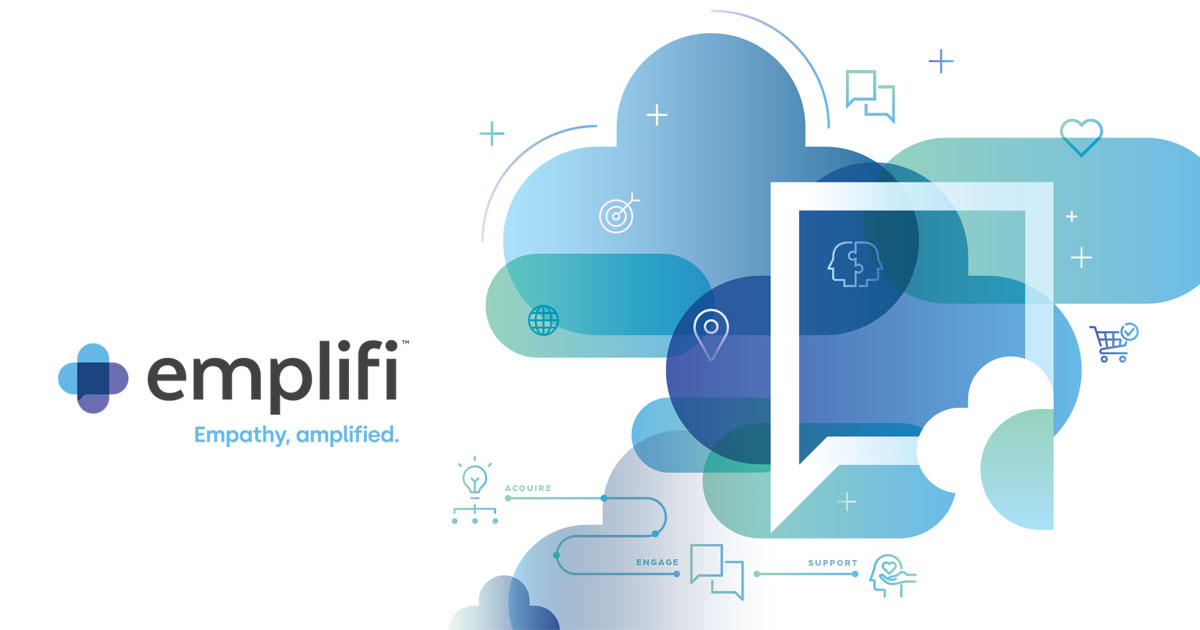
15. Sumo
Sumo is a leading social media management software that helps marketers and businesses publish, manage and analyze social content across networks like Facebook, Instagram, LinkedIn and more. Founded in 2011, Sumo is headquartered in Denver, Colorado and has helped thousands of brands and agencies streamline their social publishing.
Pros: Key advantages of using Sumo include: – Specialized social publishing and content with automated publishing schedules – Easy drag-and-drop interface makes social management simple and intuitive – Robust marketing automation integrations that allow tying social to email campaigns and more – Affordable pricing ideal for SMB growth and scalability
Cons: A potential disadvantage is that the free plan only allows publishing to 3 networks which may not meet the needs of larger brands with robust social presences.
Pricing: Sumo offers several paid plans starting from $49 – $249 per month billed annually based on number of users and social networks. Paid plans unlock features like unlimited publishing, analytics, automation and team collaboration.
Some key stats about Sumo include: – Used by over 15,000 organizations globally including Topps, Mailchimp and Grasshopper – Publish updates to 7 social networks directly from the platform – Integrates with over 200 other marketing tools including Hubspot, ActiveCampaign and Zapier
Conclusion
While most of the mentioned platforms are highly capable, the needs of each business are unique. Use this blog to understand the strengths of each software and evaluate what would be the best fit based on your requirements, budget and goals for the coming year. The right social media management tool can help optimize your processes and take your presence to the next level. We hope this evaluation helps you select the platform that will power your 2023 social media strategy.






